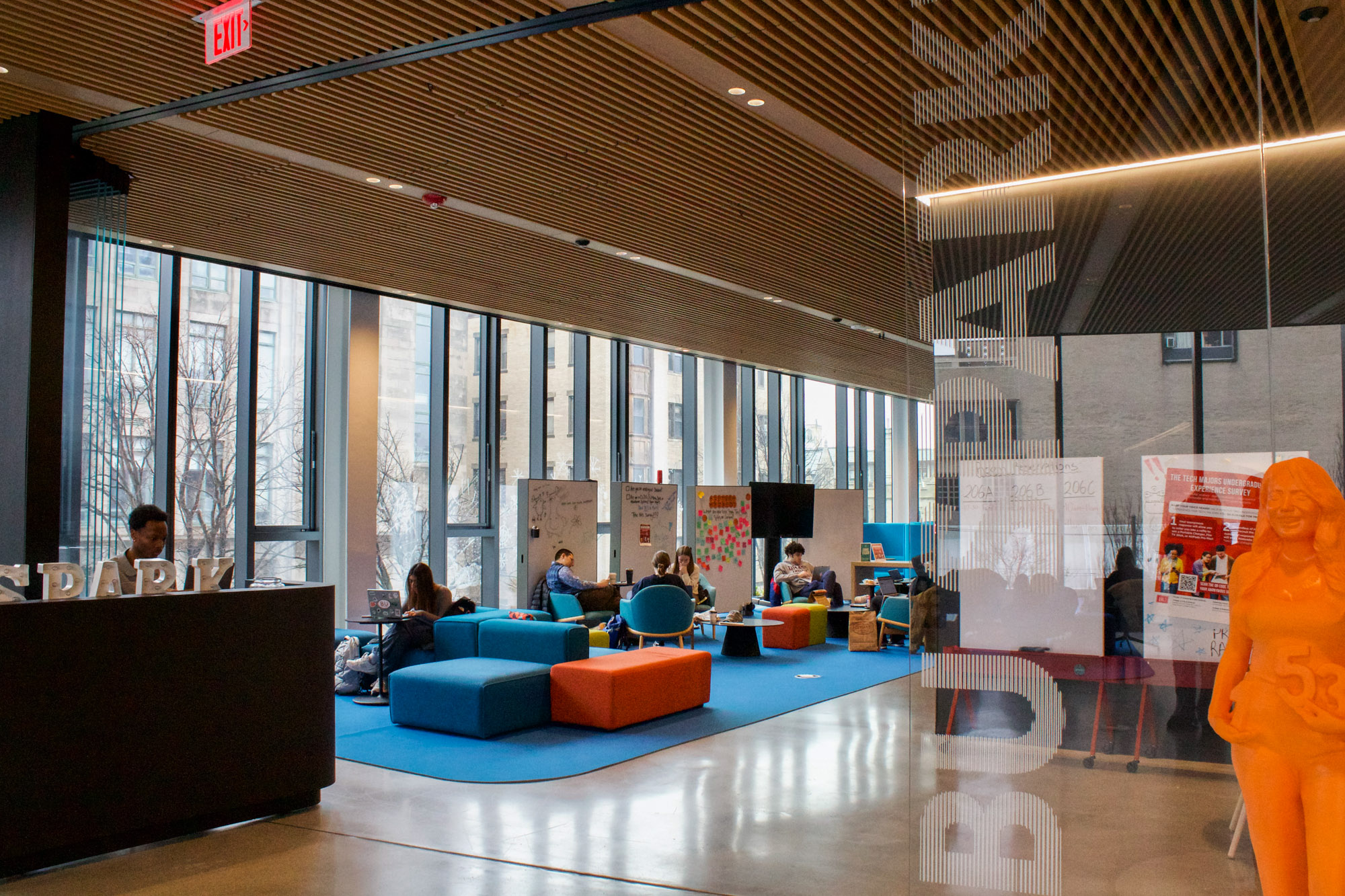Pariss Chandler, founder and CEO of Black Tech Pipeline, a diversity, equity and inclusion-focused job board, newsletter and recruiting platform, is no stranger to feeling like an outsider, she said.
During her first job as a software engineer — where she was the company’s only Black employee — Chandler said she attended a baby shower for her coworker. At the shower, guests were encouraged to bring baby photos of themselves to use in a guessing game, she said.

“I would have been the only Black baby, and it would have been, obviously, very easy to guess who I am,” Chandler said. “But what ended up happening was they actually didn’t put my picture in the game at all, and I still don’t know why.”
At her previous job, an internship at the Boston-based advertising service Hill Holliday, Chandler said she was the only woman and Black person on the tech team.
At a talk held on March 22 as part of Spark!’s DEI in Tech Speaker Series, Chandler discussed how she drew upon these experiences as her career progressed.
“There’s racism, sexism, there’s prejudice and all sorts of discrimination,” she said in an interview. “Us as individuals, we have our own perspectives, our own beliefs, and our own practices, and we project those things on to other human beings every day.”
Chandler said it was difficult for her to “assimilate” into a new culture when she began working as an intern at Hill Holiday because of the lack of Black representation.
“When you’re used to being within a community that talks and acts a certain way and is welcoming in a different way, and then you remove yourself from that community to enter this new space where it’s just not the same … it’s just hard to adapt,” Chandler said.
Black Tech Pipeline also partners with companies and organizations, nationally and internationally, to help employees find the right employers.
Chandler said she vets the companies and their DEI policies, asking them about their diversity and their plans to improve equity and inclusion, all to inform potential candidates.
But companies are unable to retain Black technologists because they don’t have proper DEI policies, she said at the event.
Black Tech Pipeline has employees from across the world including South America, Africa and Asia, Chandler said.
Gustavo Ramdohr, an MBA student and first-year management science major, said the event was eye-opening. DEI initiatives, by improving the company environment, can also lead to growth in productivity, he said.
Attendee Evan Denenberg, a junior majoring in educational design in Wheelock College said he appreciated the changes Chandler made and the impact she had on individuals’ lives.
“I’m not the target audience, but I can relate to, in some ways, the feeling of the outside as a queer person in tech,” Derenberg said. “I think oftentimes, there are issues that we face in the space in terms of belonging.”
Denenberg said he appreciated Chandler’s emphasis on building community through mentorships and partnerships.
“[DEI] is really a human problem, and technology is not ever going to solve that,” Chandler said. “And I don’t know if it will ever be solved.”

















































































































